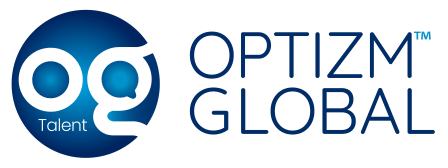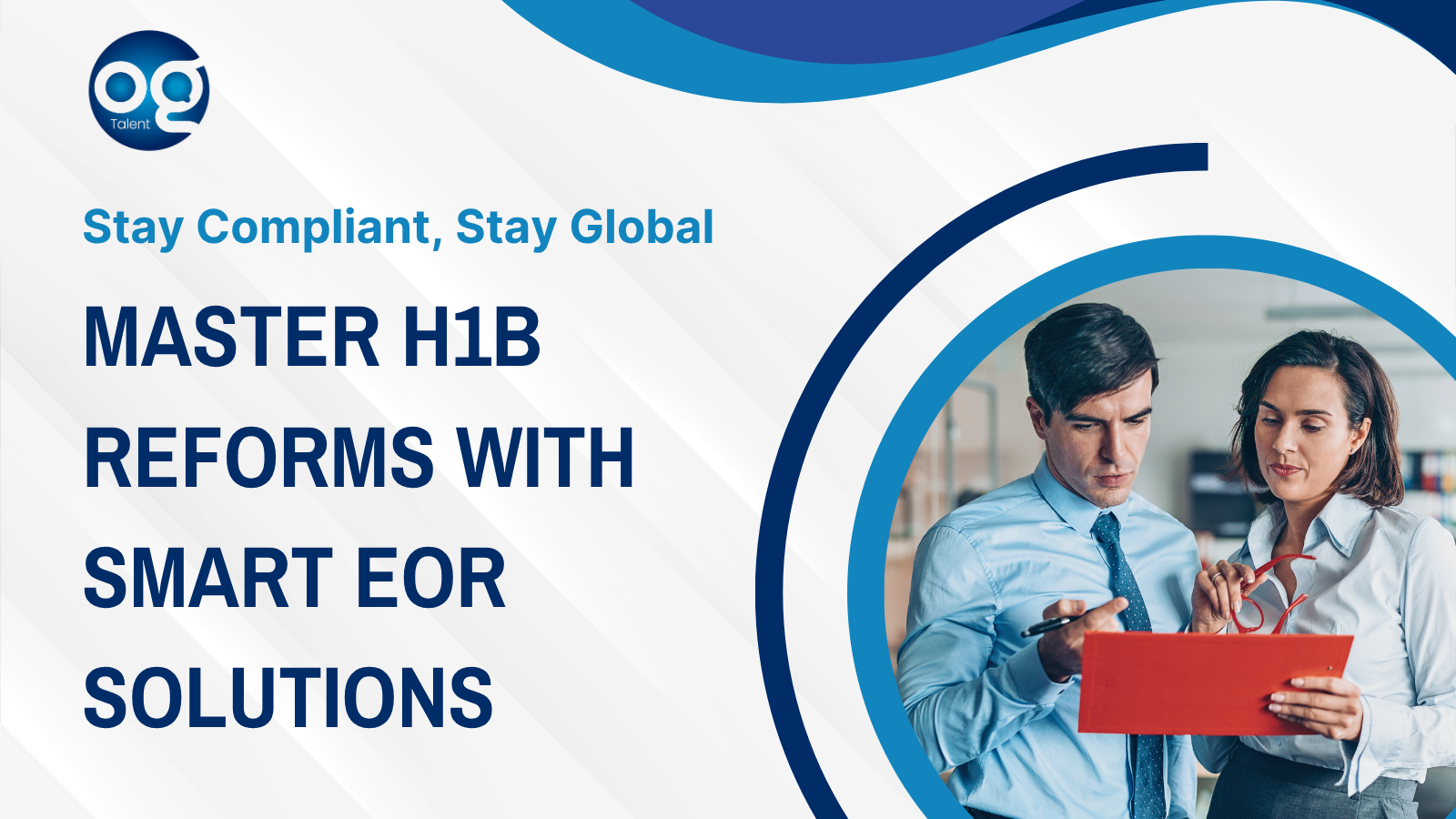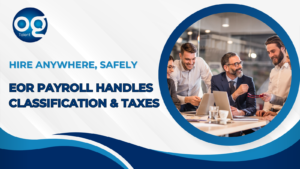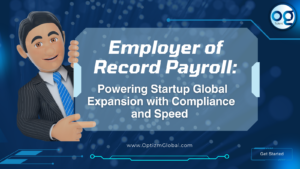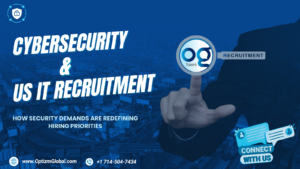The alterations to the H1B visa in 2025 have completely changed how US companies can hire internationally, especially for technological startups and IT recruiters that rely on foreign talent. The tax on applications is now an additional fee, stricter definitions around what constitutes a “specialty occupation”, and increased compliance audits, as well. The US companies will have more to consider than ever before in how they engage foreign professionals.
Understandably, and with those changes on the horizon, Employer of Record (EOR) solutions have emerged as a compliant and flexible option. These enable companies to hire and handle international employees legally, without the administrative or legal hassle of establishing foreign entities. Let’s examine how companies can use EOR solutions to weather H1B reform and what best practices will keep them compliant in 2025 and beyond.
1. Familiarize yourself with the effect of the 2025 H1B reforms
The September 2025 introduction of new H1B rules saw three significant changes:
- A $100,000 one-time fee for filing new H1B petitions (impacting employers hiring outside the U.S. talent).
- Tighter interpretation of “specialty occupations” — restricting approval to positions directly related to specific degrees.
- Improved tracking of visa abuse, including employer–employee arrangements and third-party placements.
These changes have made the conventional H1B sponsorship path costly and complicated. As per USCIS statistics, the count of unique H1B registrations decreased by more than 25% from FY2025 to FY2026, marking increasing caution from employers.
Annual CAP on H-1B visa, FY2025 to FY2026:
Fiscal Year |
Statutory Annual Cap (total) |
Cap Breakdown |
Date USCIS Announced Cap Reached |
EligibleRegistrations (reported) |
Selected/Initial Selections (reported) |
Change in Eligible Registrations vs prior FY |
FY2025 |
85,000 |
65,000 (regular) + 20,000 (U.S. master’s) |
Dec 2, 2024. (USCIS) |
~470,342 eligible registrations (USCIS reporting / public summaries). (wsmimmigration.com) |
~120,603 initial selections (USCIS / public reporting). (larrabee.com) |
N/A |
FY2026 |
85,000 |
65,000 (regular) + 20,000 (U.S. master’s) |
Jul 18, 2025 (USCIS announced initial cap reached). (Ogletree) |
~343,981 – 358,000+ eligible registrations reported across USCIS summaries and press coverage (USCIS reported a ~26.9% decline vs FY2025). (American Immigration Council) |
~120,141 (reported selections for FY2026 in public summaries). (The Times of India) |
~27% decrease in eligible registrations vs FY2025 (USCIS / American Immigration Council reporting). (American Immigration Council) |
This is where EOR partnerships step in — an approach that offers a compliant international hiring platform that sidesteps the expense and limitation of H1B sponsorship.
2. Legally Hire Global Talent through EOR Services
An Employer of Record is the legal employer for your organization in a foreign country. It provides the following services:
– Local payroll and benefits
– Tax compliance and withholding
– Labor law compliant employment contracts
– Onboarding and immigration paperwork
Working with an EOR gives a company the ability to onboard international developers, engineers, or analysts without having to worry about visa restrictions. The worker is employed from home in their home country, while the EOR handles all compliance issues relating to local employment and tax laws.
As an example, rather than having to sponsor an Indian software engineer under the H1B visa, a U.S. business can hire that individual through an EOR partner from India.
3. Prioritize Jurisdiction-Specific Compliance
Every nation has unique labor, tax, and data protection regulations. The top EOR partners facilitate their complexity, ensuring compliance with:
- Tax treaties between the U.S. and other countries
- DPR and local data privacy laws (for Europe)
- Statutory benefits and severance legislation (for APAC and Latin America)
According to the 2024 PayrollOrg Getting the World Paid survey, 63.1% of payroll professionals around the globe stated that compliance is their primary challenge in global payroll. In the 2025 edition of the same survey, 57% selected local compliance as their highest concern in global payroll..
Global EOR services handle payroll while allowing the companies to avoid another major compliance risk- misclassification of employees as contractors rather than full-time employees.
4. Maintain Transparent Documentation & Audit Trails
H1B reinforces the employer responsibility. To remain compliant, it’s best to arrange the following:
- Signed employment contracts with clear terms for employment, wage payment, and jurisdiction.
- Hiring documentation that verifies the right to work and audits of identity.
- Pay records to document compliance with local minimum wage laws.
This transparency assures that, if there were to be a regulatory audit (IRS or DOL, for example), your practices for international employees are traceable.
5. Utilizing AI and Payroll Automation for Increased Accuracy
Through AI, tracking legislative changes, noticing inconsistencies in pay structures, and automating tax withholdings across borders will all become more manageable.
For instance, AI-powered compliance engines employed by high-end EOR platforms can auto-refresh with fresh country-specific tax thresholds — minimizing the likelihood of non-compliance penalties.
6. Ensure Employees are Personally Communicated About Compliance Policies
Employees hired through an EOR need to know:
- Who their legal employer is (the EOR or the client company)
- The pay cycle and local deductions that apply to them
- Benefits and entitlements or grievance policies
This way, you build trust and avoid misunderstandings and conflict with your employees going forward.
7. Conduct Regular Compliance Reviews
EOR compliance is not a “set it and forget it” activity. You should conduct an audit periodically to review:
- Changes to local tax and employment regulations
- Approvals/affiliation/ & classification or contracts
- Federal contracts and cross-border payments, or local payroll history
Your EOR should partner with you to assist you with changing H1B guidelines and updates on other local statutes. A refreshed compliance strategy protects your company from salient fines or brand damage.
Conclusion
The 2025 H1B reform sends a strong message: global hiring is heading in the direction of flexibility and compliance-first models. Global EOR services are not an accommodation but a strategic solution for companies facing talent shortages and visa restrictions.
As international borders continue to become more digital than geographical, EOR services allow businesses to keep their competitive edge on innovation, not immigration.
